What is FreeREG?
Before the introduction of civil registration of birth, marriages and death records, parish registers are a key family history source, providing dates and more details for our ancestors’ baptisms, marriages and burials. FreeREG is a free searchable collection of transcribed Protestant and nonconformist parish registers for England, Wales, Scotland, Ireland and the Channel Islands. As of November 2022, FreeREG has over 56 million records.
FreeREG is part of Free UK Genealogy, an organisation dedicated to free family history research for everyone. Along with FreeCEN (dealing with census records) and FreeBMD (dealing with civil registration indexes of births, marriage and death records in England and Wales), FreeREG is working hard to ensure that accurate and detailed information is available to the public, and the collections available on the website are growing all the time.
Where do FreeREG’s records come from?
All FreeREG records are transcribed by volunteers. These are men and women of all ages and from diverse backgrounds. Although the majority live in the UK, we have help from all over the globe. Our transcribers work from images of registers, some of them quite faint or with old handwriting that is hard to read, and record the information that they find there. They can work at their own pace – there are no deadlines to meet.
Volunteers range from those who have no experience to those who are well versed in reading through registers. Training can be provided, and each county, or region, will have a coordinator on hand to help guide new recruits through the entire process. Data can be entered using an easy-to-use program or a pre-formatted spreadsheet.
Many volunteers come to us after using the website themselves, or because they are passionate about FreeREG’s mission. You can find out how to become a volunteer transcriber with FreeREG here.
How to search FreeREG
Step 1
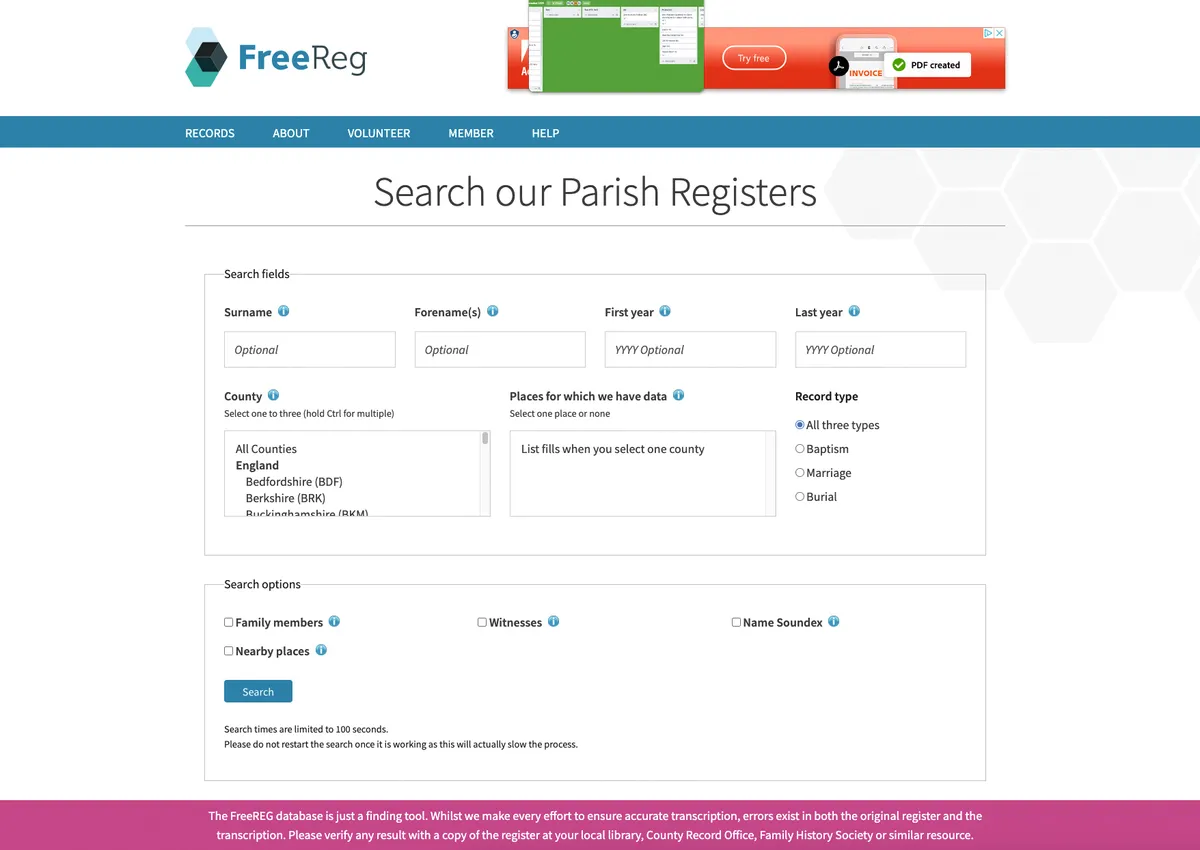
Type freereg.org.uk in your browser to go to the website’s homepage, which includes the search facility. There is also a link to a useful ‘Help’ section.
Step 2
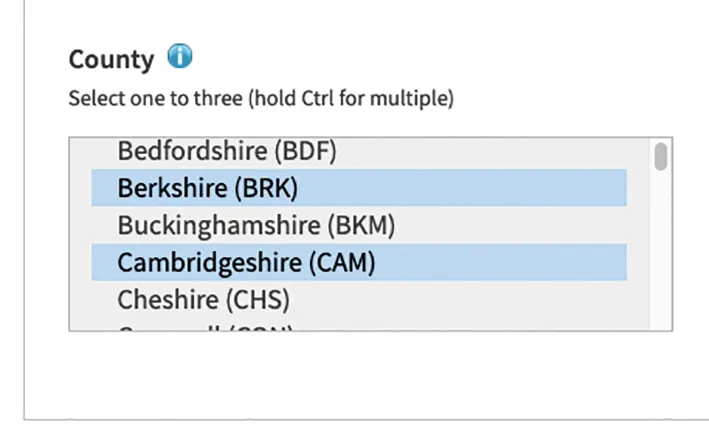
To search, enter a surname and a county, date range or record type. You can extend your search to up to three counties by Ctrl-clicking (Cmd on a Mac).
Step 3
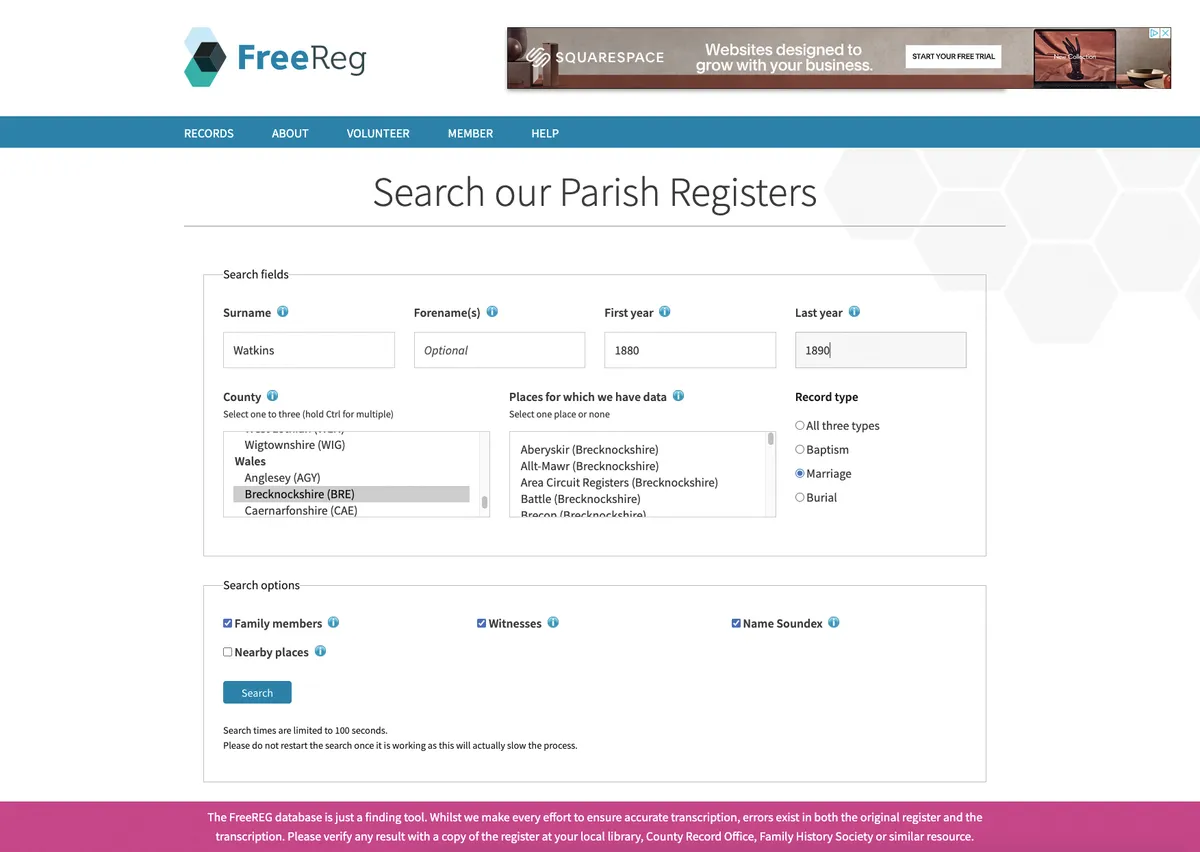
So, if you’re looking for Granny Watkins, who married in Brecknockshire in the 1880s, enter her surname, the county and the date range. Then click ‘Search’.
Step 4
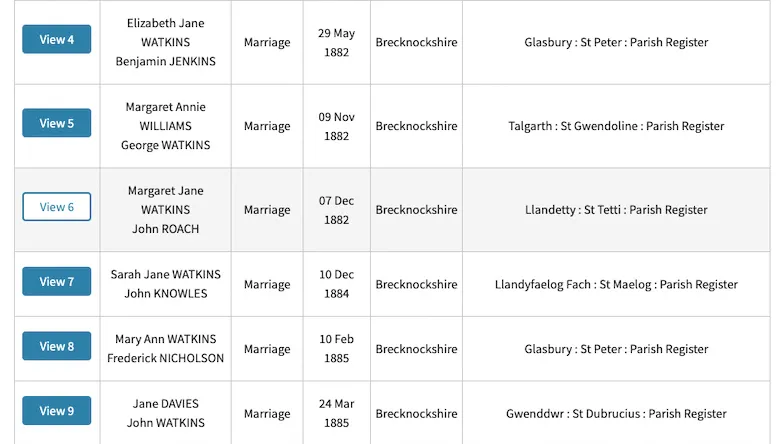
For this example, Granny is Margaret Watkins, who married in Llandetty in 1882. Click the button next to her name to get more information.
Step 5
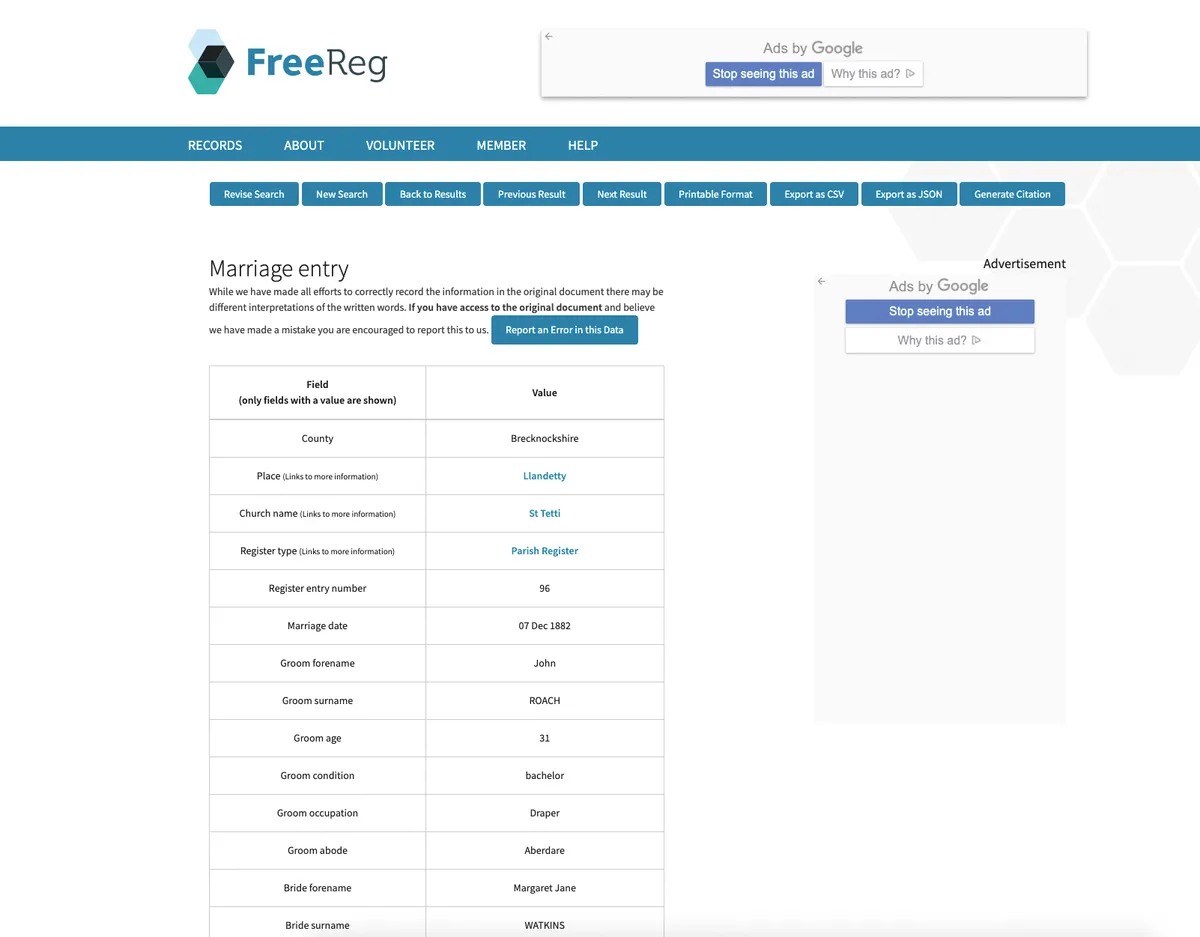
Margaret married John Roach, a draper from Aberdare. There are lots of other useful details, including the names of their fathers and the witnesses.
Step 6
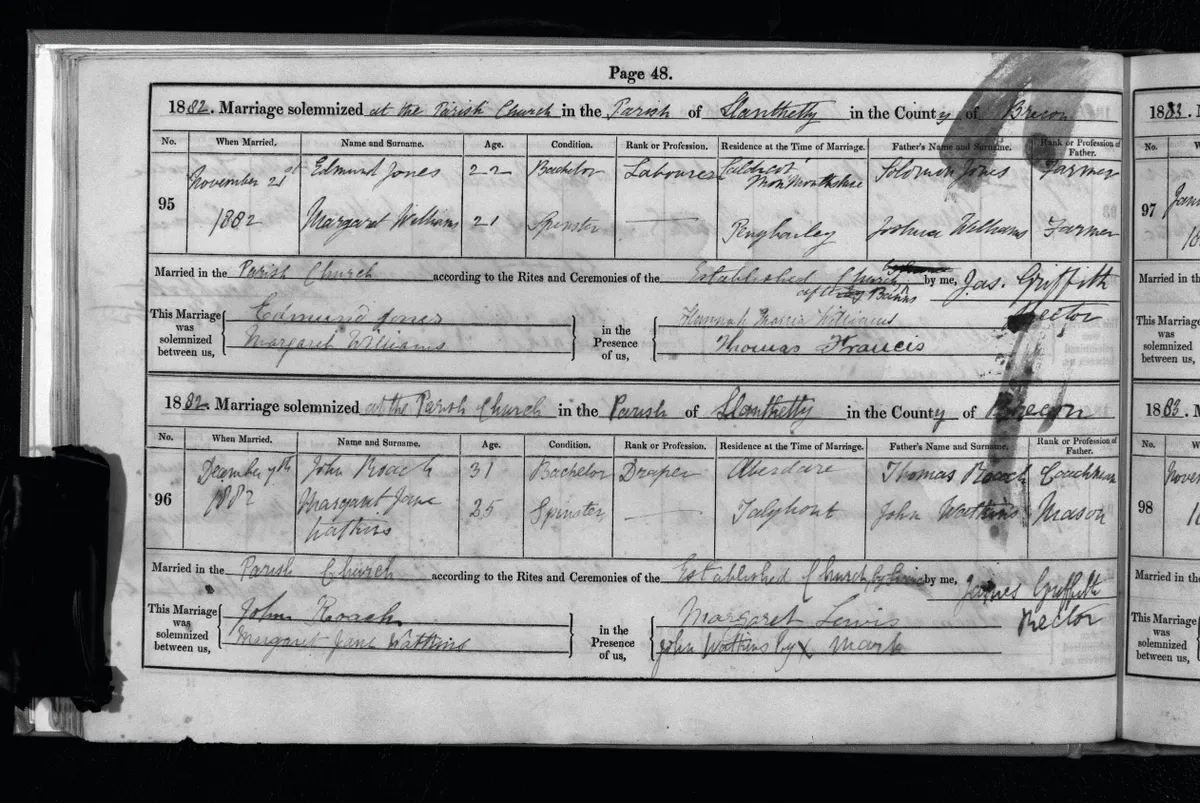
Once you find a record, you can check other family history websites to see if they have got digitised images of the entry, or contact the relevant local record office.
It is often a good idea to start with a broad date range of 20-30 years. If the website indicates too many results to display, try a smaller date range, for example a single decade.
The list of results will allow you to see names, dates and the church or chapel where the baptism, marriage or burial took place. You can then click on entries to see what other information is available, which may give you further clues to allow you to narrow your search criteria.
When searching FreeREG, always tick the ‘Name Soundex’ option; this will bring up any variations of a forename or surname. For example, searching for the baptisms of Eleanor Jones in the county of Glamorgan with ‘Name Soundex’ selected gives you results for the forename spellings Elinor, Ellinor, Elenor and Eleanora, as well as Eleanor itself. Likewise, a ‘Name Soundex’ search for the surname Jenkins also gives you results for Jenkin, Jinkins, Jinkin and even Johnson. This is an incredibly valuable tool, because misspellings are common in registers – surname spellings were not standardised until the arrival of mass literacy.
You can also use FreeREG’s ‘Nearby places’ tool to see results for nearby hamlets, villages and towns. This can help you to track down elusive ancestors who might have left the city centre, or otherwise have moved away from where you expected them to be while staying in the same general area.